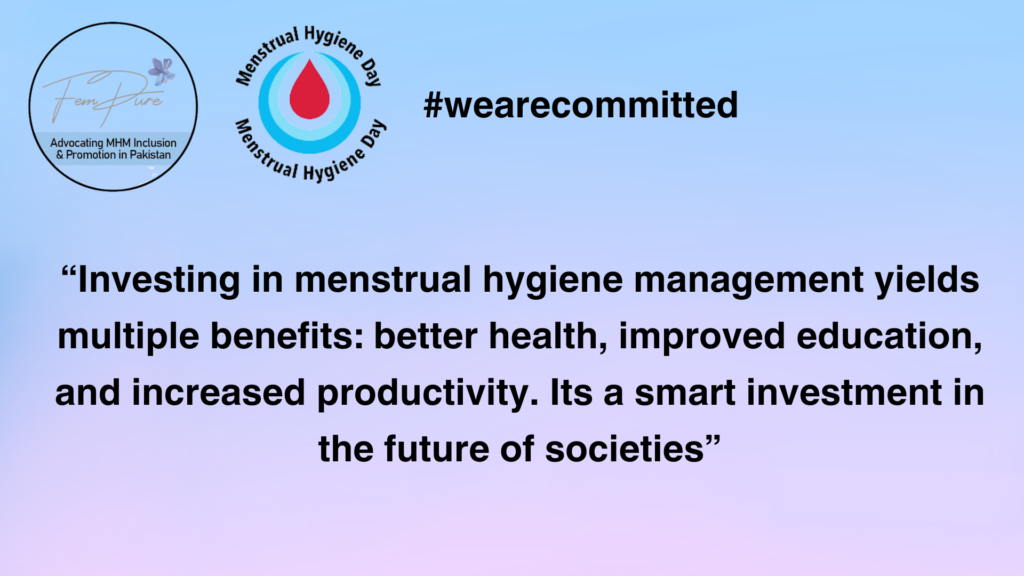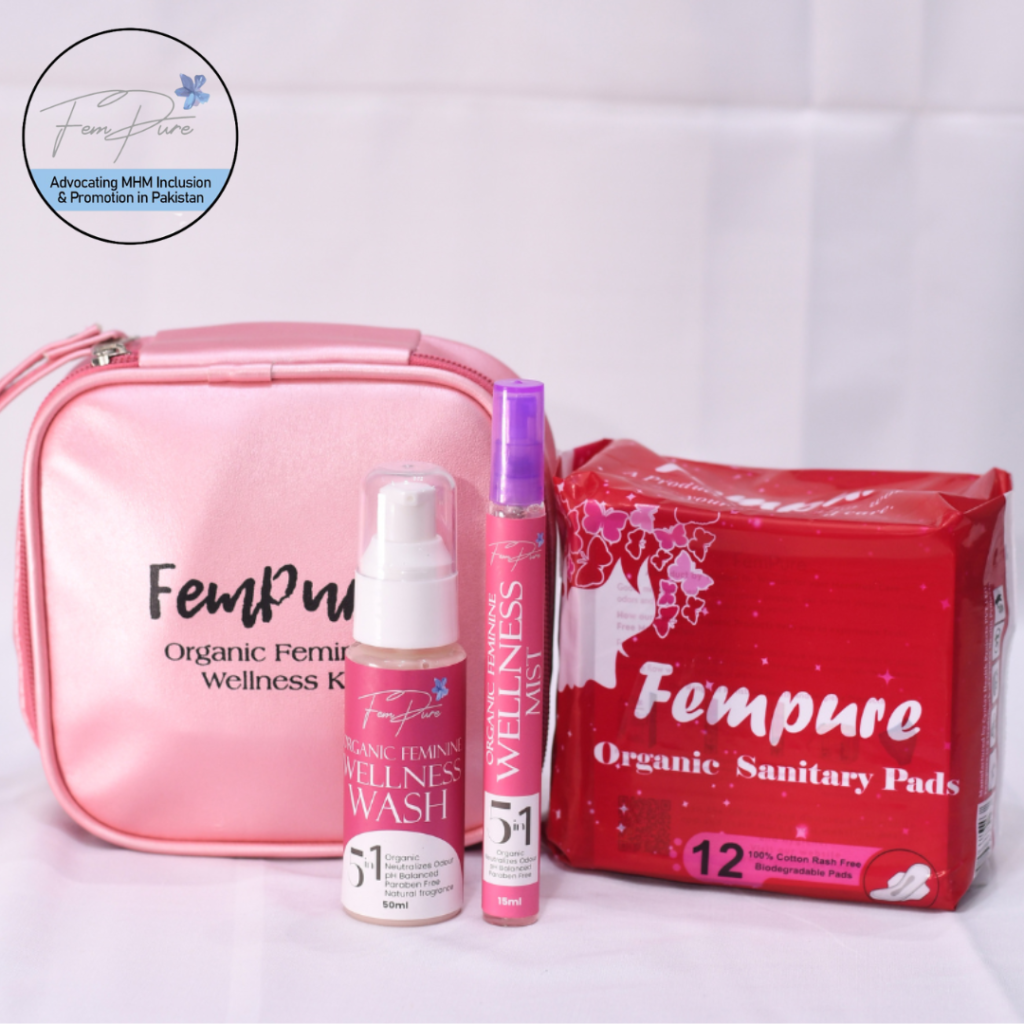Menstrual Health Ecosystem for combating Period Poverty

In Pakistan, menstrual health and hygiene management presents a significant challenge due to cultural stigmas, lack of education, and limited access to affordable and hygienic menstrual products. A substantial portion of the female population faces period poverty, which refers to the struggle many low-income women and girls face while trying to afford menstrual products. In Pakistan, there are more than 48 million girls and women in the age group of 11-49 years of age. Around 49% of women and girls do not have access to menstrual products and only 22% have access to sanitary pads of varying quality. Around 79% of the girls have no knowledge about menstruation prior to their 1 st cycle. Around 33% of women suffer from urinary tract infections due to use of unhygienic menstrual materials. The consequences of period poverty in Pakistan are profound, affecting women’s and girls’s health, education, and socioeconomic status. The lack of awareness and accessibility to proper menstrual hygiene products leads to the use of unhygienic substitutes, which can result in severe health complications. Additionally, the cultural taboos surrounding menstruation further exacerbate the issue, hindering open discussions and education on the topic.
Fempure: Advocating for Menstrual Health Promotion & Inclusion in Pakistan
Recognizing these challenges, Fempure, an initiative by Cyntax Health Projects PVT LTD from Pakistan, has launched a groundbreaking campaign to combat period poverty through a holistic ecosystem centred around menstrual health. Fempure has developed a line of organic sanitary pads, organic vaginal wash, organic vaginal mist, organic hygiene kit and reusable menstrual products that are both eco-friendly and affordable. These products are made from natural materials, ensuring they are safe, hygienic, and sustainable. The manufacturing process involves female researchers as well as female support staff aiming that through this project, sustainable livelihoods can be offered to females. By offering a healthier alternative to the conventional menstrual products available in the market, Fempure aims to reduce health risks associated with chemical-laden products and promote environmental sustainability.

Mobile App for Revolutionizing and Improving Access to Menstrual Products
Understanding the importance of education in overcoming menstrual stigmas and promoting hygiene, Fempure has launched a mobile app. This app serves as a comprehensive resource for
menstrual health education, providing information on menstrual
hygiene management, health tips, and answers to frequently asked
questions. The app aims to break the silence around menstruation,
encourage open discussions, and empower women and girls with
knowledge.

Women Economic Empowerment through Menstrual Products
Fempure’s initiative goes beyond health and education; it also
focuses on economically empowering women. By developing display centres in their households, Fempure has involved women to maintain a supply chain of Fempure’s menstrual products and earn an income. This model not only makes menstrual products more accessible to local communities but also provides women with an opportunity for economic empowerment. Women entrepreneurs are trained on digital software and supported to manage these centres, thereby fostering a network of female-led businesses that contribute to the overall well-being and economic development of their communities. The campaign envisions a future where menstrual health is not a barrier to education, health, or economic participation for women and girls in Pakistan. Through its comprehensive approach, Fempure aims to tackle period poverty, reduce the stigma associated with menstruation, and empower women both economically and socially. The initiative is a step towards creating a more inclusive and equitable society where menstrual health is recognized as a fundamental right, and all women have access to the resources they need to manage their menstruation with dignity.
www.fempurepk.com

